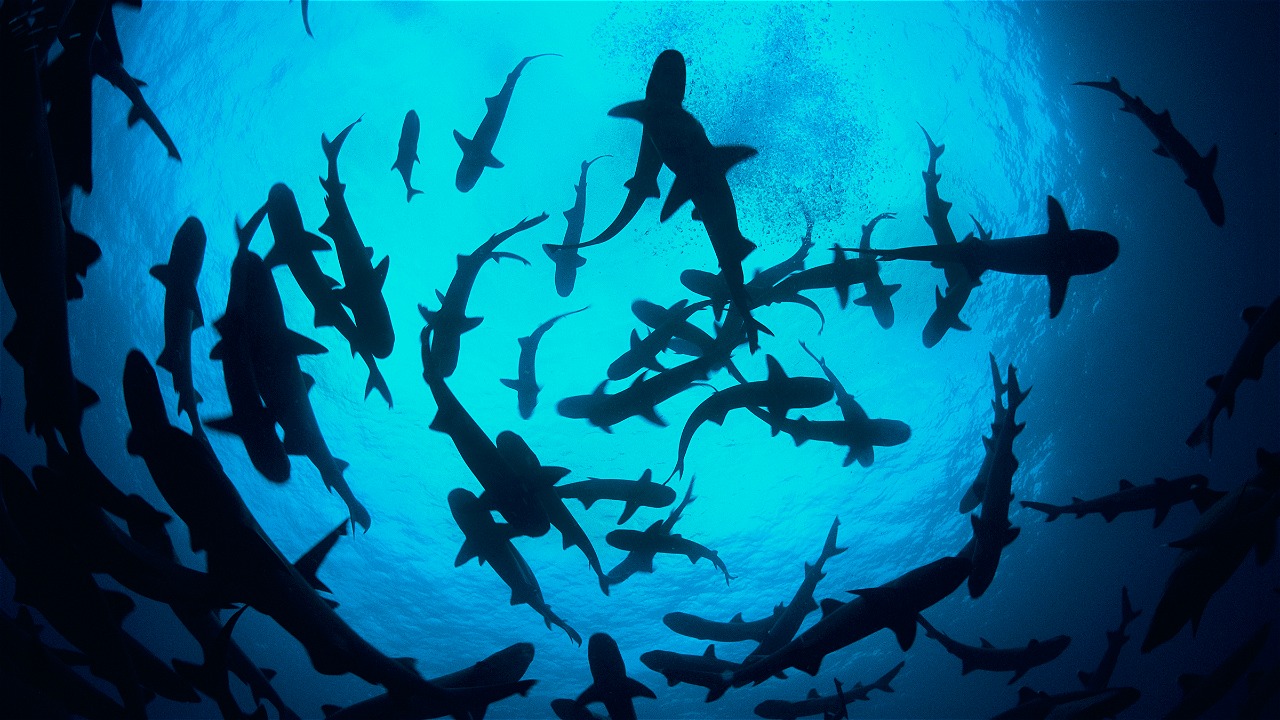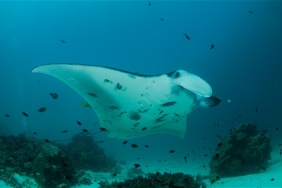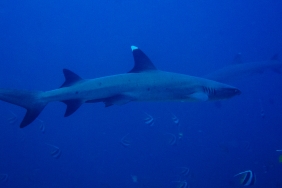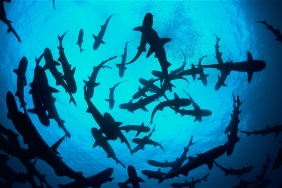FINLESS SHARK TRADED TO BOOST BUSINESS TURNOVER
By Ranny Ramadhani Y
Muara Angke, fishing port located in North Jakarta, used to be the hub of handling and processing of catches landed by traditional fishers and fishing companies (Traditional Fishery Product Processing/Pengolalahan Hasil Perikanan Tradisional/PHPT) in Jakarta from 1960s to 1990s. There are also some small-scale processing companies of sharks and rays based in Muara Angke. Most of the shark catches to be processed are taken from other cities like Surabaya, Sidoarjo, Cirebon, etc. The total weight of shark and ray catches can reach up to 10 – 50 tons/month (the average weight of each adult shark is 40 kg) collected from the landing of fishing boats and Gudang Kapuk, North Jakarta. Some sharks captured by fishers have been already finless so they can only process their left body and skin. The shark processing is done by cutting the sharks or rays, and then the sharks/rays that have been cut into pieces are salted and dried in the sun. The products (dried and salted sharks/rays) are usually sold to Bandung, Garut, Bogor, and other cities. Middlemen only pay Rp 6,500 – 28,500 for every kg of shark/ray they purchase from fishers, and then they can resell the shark products from Rp 17,000 to 170,000/kg. The turnover of this business is huge, up to 100 million – 1.5 billion rupiahs.
Shark population declined significantly over the past few decades, and some sharks species are included in CITES Appendix II List. As the top predator, shark plays a critical role in keeping our ocean healthy and in balance, so irresponsible shark fishing can lead to severe damage on marine ecosystem. According to a book entitled “Tinjauan Status Perikanan Hiu dan Upaya Konservasinya di Indonesia” (Review of Shark Fisheries Status and Conservation in Indonesia), in 2013 at least 14 shark species are determined to be on the high protection status due to their steeply declined populations. There should be regulations in place to protect those shark species as well as rays. It should be noted that female sharks only give birth to 1 – 10 offsprings per 2 – 3 years.
The Vice Governor of Jakarta, Basuki T. Purnama or commonly known as Ahok also supports the shark protection, and he has been officially appointed as one of the WWF #SOSharks campaign ambassadors. As a matter of fact, Ministry of Marine Affairs and Fisheries (MMAF) has disseminated the information on protected shark and ray species to the small-scale processing companies based in Muara Angke. The main problem is however the sharks taken into Muara Angke have been cut into pieces, which makes it difficult to identify their species. Some business players said that they chose not to process ocean/reef manta since they believed that this species could bring bad luck.
One of the ways to protect sharks and rays is by designating shark sanctuary, protecting their critical habitats along their life cycle. This attempt however will only be successful with supports from various stakeholders including government, industries/business players, fishers, NGOs, and people in general. As a part of the society, we can support the movements that encourage the formulation of specific regulation to protect sharks, such as regulation enacted to specifically protect two species of manta rays (manta birostris and manta alfredi), Decree No. 4/2014, and stop consuming shark products. Yet, there should also be solutions for industries/business players and fishers depending on shark and ray. SAVE OUR SHARKS!





